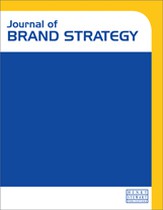Killing manufacturer brands softly: The rise of private labels and no brand preference
Abstract
This paper explores shifts in consumer preferences for national brands, private labels and retailers over a 10-year period. Over that time, identification of ‘no brand’ preference across retail categories has increased at an average annual rate of 2.56 per cent, reaching 23.5 per cent in 2024 across 26 consumer product categories. The largest increase over the 10 years in terms of retailer type is the Internet, with an average increase of 9.58 per cent. Among retailers, discount store preferences have remained relatively flat. Membership warehouses have experienced a solid increase in preference. Specialty stores, and especially department stores, have had sharp declines. For consumer product brands, there is a moderate inverse relationship between the share size and growth rate for private labels, compared to a weaker relationship for no preference brands. Both are, however, increasing. Purchasing frequency has almost no relationship with private label preference and no brand preference. A similar pattern is seen with the purchase cycle and private label and a weak inverse relation with no preference share. It is also worth noting that private label and no preference preferences are moderately related. Assuming continued growth for the next 10 years, the overall private label preferences should continue to crowd out the national manufacturer brands.
The full article is available to subscribers to the journal.
Author's Biography
Martin P. Block , PhD, is a professor emeritus of Medill’s Integrated Marketing Communications programme at Northwestern University, USA. Block teaches graduate-level marketing mix models, marketing research and analytical techniques, sales promotion, advertising management, direct marketing and entertainment marketing courses.
Frank Mulhern , PhD, is the Hamad bin Khalifa Al-Thani Professor of Integrated Marketing Communications at the Medill School, Northwestern University, USA. He is the Director of the Retail Analytics Council, a research centre on retail technology, data and analytics. He specialises in research on retail marketing, the role of technology and analytics in retailing and e-commerce and the integration of digital media and marketing.
Larry Degaris , PhD, has conducted more than 100 sponsorship measurement studies for many of the world’s leading sponsors, including Bank of America, Pepsi, Home Depot, United Parcel Service (UPS) and many others. As the Executive Director of the Medill Spiegel Research Center, Northwestern University, the home of Integrated Marketing Communications, Larry champions an integrated approach to marketing measurement with a focus on developing and integrating direct measures of effectiveness for below-the-line marketing.
